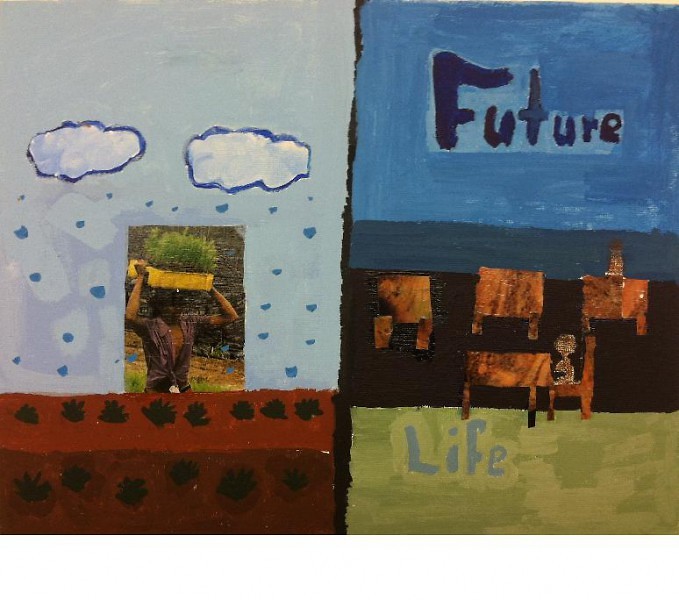The series & assignment
This article is one in a series created by students in Mr. Alex Escamilla's journalism class at Southwest Community Campus. Students were asked to complete artwork and write an article regarding immigration issues in Grand Rapids, and America as a whole. Students worked with artist Reyna Garcia and Grandville Avenue Arts and Humanities to complete artwork that best showed their views on immigration.
For more information on the project and those involved, click here.
All artwork will be displayed in an upcoming art show, open to the public.
Users may vote, comment, share, or tweet these articles up until the art show. The student whose article and artwork receives the most votes, comments, shares, and tweets will receive a special Rapidian award.

